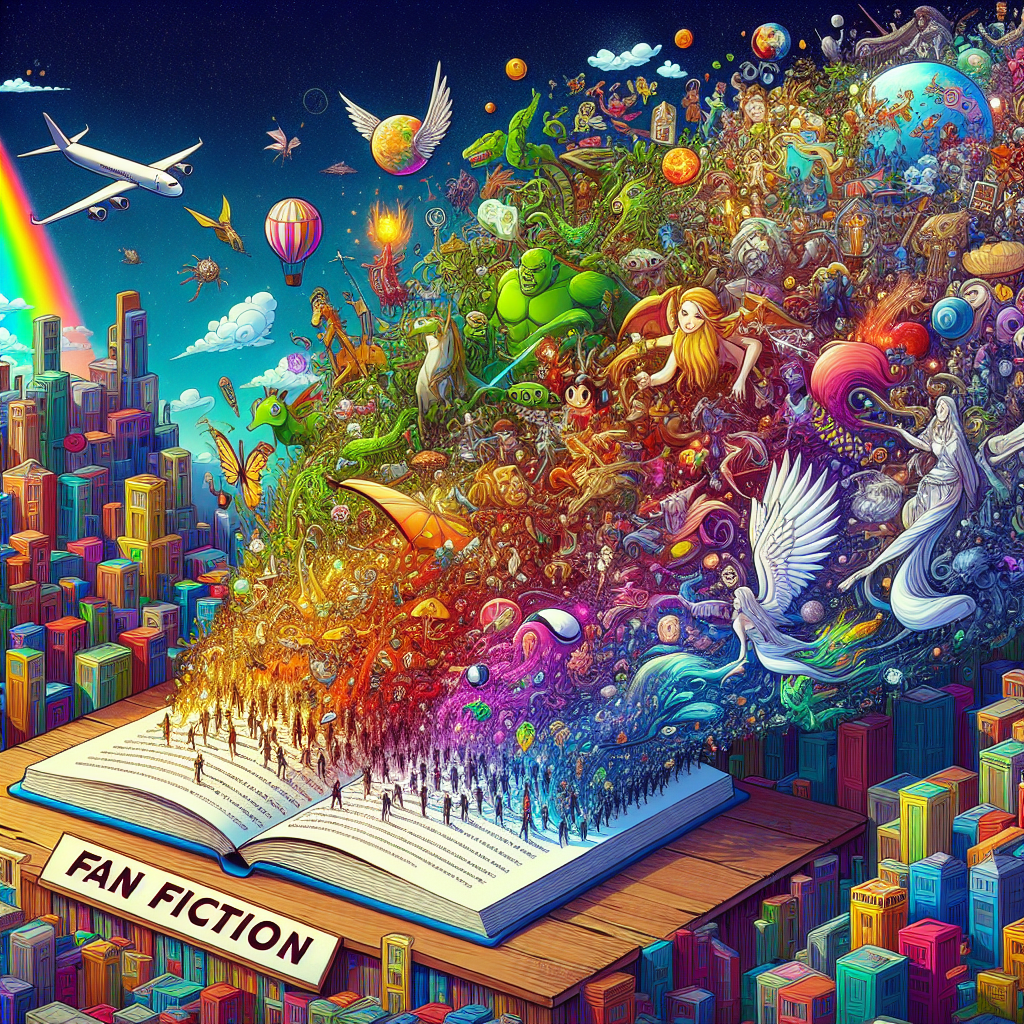Fan fiction has become an integral part of popular franchises, as fans take creative liberties with beloved characters and settings to create new and imaginative stories. From Harry Potter to Star Wars, fan fiction has sparked debates and discussions among fans and creators alike. But how does fan fiction impact popular franchises, and what are the pros and cons of this phenomenon?
Impact of Fan Fiction on Popular Franchises
Fan fiction can have a significant impact on popular franchises in terms of engagement, creativity, and even financial gain. One of the main ways fan fiction impacts popular franchises is through increased engagement from fans. By creating their own stories and sharing them with others, fans show their love and dedication to the franchise. This can help keep interest in the franchise alive between releases of official content, and can even attract new fans who discover the franchise through fan fiction.
Fan fiction also allows for a level of creativity that official content may not always achieve. Fans can explore different scenarios, character pairings, and plot twists that may not be possible in the official canon of the franchise. This can lead to new ideas and perspectives that can influence the direction of the franchise itself. Creators may even take inspiration from fan fiction and incorporate popular fan theories or ideas into future official content.
In some cases, fan fiction can even lead to financial gain for popular franchises. Fan fiction can generate buzz and excitement around a franchise, leading to increased sales of official merchandise, books, movies, and other products. Fans who are passionate about a franchise may be more willing to spend money on official content if they are engaged in the fan fiction community. Some franchises have even embraced fan fiction and created official platforms or contests to encourage fan creativity.
Pros and Cons of Fan Fiction
While fan fiction can have many positive impacts on popular franchises, there are also some drawbacks to consider. One of the main pros of fan fiction is its ability to foster creativity and engagement among fans. Fan fiction allows fans to explore their own ideas and interpretations of a franchise, and can lead to a richer and more diverse fan community. Fan fiction can also provide a platform for marginalized voices and perspectives that may not be represented in the official canon of a franchise.
However, there are also some cons to consider when it comes to fan fiction. One of the main drawbacks is the potential for copyright infringement. Fan fiction often uses copyrighted characters, settings, and storylines without permission from the original creators, which can lead to legal issues. Some creators may feel that fan fiction dilutes their work or misrepresents their characters, leading to conflicts between fans and creators.
Another potential downside of fan fiction is the spread of misinformation or harmful content. Fan fiction can sometimes perpetuate harmful stereotypes or misinterpretations of characters, and can lead to confusion among fans about what is canon and what is fan-created. Fan fiction can also create unrealistic expectations among fans for future official content, leading to disappointment if the franchise does not meet these expectations.
Frequently Asked Questions
1. Is fan fiction legal?
Fan fiction exists in a legal gray area, as it often uses copyrighted characters and settings without permission from the original creators. While some creators may turn a blind eye to fan fiction, others may take legal action to protect their intellectual property. It is always best to seek permission from the original creators before creating fan fiction, or to create original characters and settings to avoid copyright infringement.
2. Can fan fiction influence the direction of a franchise?
Fan fiction can sometimes influence the direction of a franchise, especially if fan theories or ideas gain popularity among the fan community. Creators may take inspiration from fan fiction and incorporate fan-created characters or storylines into future official content. However, creators are not obligated to follow fan fiction, and may choose to ignore or contradict fan-created content in favor of their own vision for the franchise.
3. Are there any professional authors who started as fan fiction writers?
Yes, there are several professional authors who started out writing fan fiction. Cassandra Clare, for example, began her writing career in the fan fiction community before publishing her own original novels. E.L. James, author of the “Fifty Shades” series, also started as a fan fiction writer before turning her stories into a bestselling book series. Fan fiction can be a valuable stepping stone for aspiring writers to develop their skills and gain a following before pursuing their own original works.
In conclusion, fan fiction has a significant impact on popular franchises in terms of engagement, creativity, and even financial gain. While there are pros and cons to consider, fan fiction remains a beloved and important part of fan culture. Fans will continue to create new stories and explore new ideas within their favorite franchises, shaping the future of these beloved worlds.
